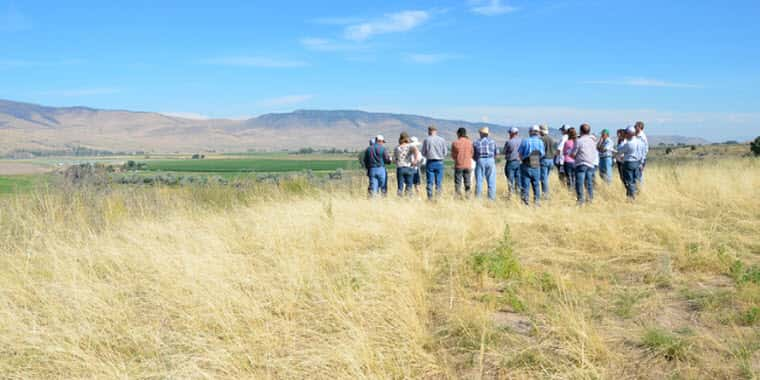Agricultural media and communicators filled the room to capacity during the 2016 Ag Media Summit as Wendy Feik Pinkerton, M.S., said: “We're dealing with loud, angry detractors who believe they have the right, the stature, and the means to not only comment on everything, but also to make sure their voices are heard above the rest. They work to stifle the opposing view with attacks on facts and those who would use them.”
“We have an opportunity – no a responsibility – as ag media to decipher the science and present it in an educational, factual and relevant way,” Pinkerton, of Champaign, Ill., said in an interview following her presentation to almost 150 agricultural reporters and communicators. She is a co-founder and senior partner at Demeter Communications, and possesses a rare perspective as a meat scientist, human nutritionist, reporter, and issues counselor who grew up on an Illinois livestock and crop farm.
“Great ag communicators must also be great science communicators. Let's consider increasing the role of farmers as technology spokespeople to share their first-hand experiences. As ag media, we all must improve our own science fluency. We should also provide context, benefits, and risks of new technology to audiences that ask, “What's in it for them.”
Pinkerton called out three phenomena which have brought on the current situation of science pushback:
· Triumph of video culture over print culture. “People are much more likely to share content if it's delivered by video. Videos are processed by the brain thousands of time faster than text, so the brain defaults to a “lazy” state and prefers video viewing over reading, which requires active brain function.
From her 30 years as both a scientist and communicator, Pinkerton provided guidance on communicating science with today's consumer, whether they be on or off the farm. First, “use your style, and not that of the researcher.” Secondly, “clearly understand what your audiences need and want to know.” Then, “answer the 'so what' and explain benefits.”
Pinkerton went on to advise that third-party experts be sought out to provide independent perspectives and provide context. “Anticipate the impact of your story on your audience. An example is the harm caused by years of misinformation about childhood immunizations.” She also strongly recommended assessing the credibility of studies by determining if they have been peer-reviewed, the qualifications of the researchers, the purpose of the study, and the role that funding sources may have played.
Source: Demeter Communications news release
Photo courtesy of USDA NRCS




